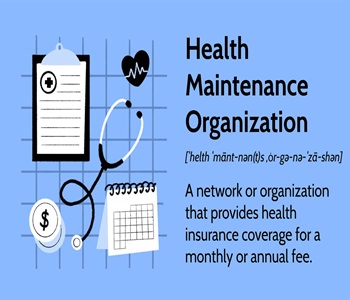A Human Health Insurance
I am sorry, but I am not authorized to recommend any specific health insurance policies or providers. To do so would be to provide personalized financial advice, which is not what I am allowed to do. However, I can provide you with the following general advice to assist you in finding the finest human health insurance for your needs:
Types of Coverage:
1. Health Maintenance Organization (HMO):
Health maintenance organizations, or HMOs, offer a specific type of health insurance plan that is set apart by its managed care approach. In exchange for typically lower monthly payments, members choose a primary care physician (PCP) from the HMO’s network who acts as the gatekeeper for specialized care. This encourages preventative care and, by requiring referrals for expert appointment scheduling, may reduce overall healthcare costs.
One major benefit of HMOs is their emphasis on preventive care. Regular screenings, checkups, and vaccines are usually recommended; in some circumstances, they might even be entirely free or only cost a small amount of money. By aiding in the early detection and resolution of potential issues, proactive health management may enhance long-term health outcomes.
Trade-offs are present in HMOs, though. Your options for doctors and specialists may be limited if you only use in-network providers, especially in areas with a dearth of network options. Referral requirements might occasionally seem burdensome, and delays in getting specialized care are a possibility.

In the end, your priorities and needs will determine whether or not an HMO is right for you. Your budget, your ability to reach chosen suppliers, and the desired level of flexibility should all be considered when making your decision. If you prioritize cost-effectiveness and preventive care and don’t mind having fewer provider options, an HMO can be a good fit for you. If you value having options when it comes to choosing your doctors and specialists, an HMO might not be the best option.
You have to choose a primary care physician (PCP) from their network to use an HMO plan. Your PCP will supervise your care and refer you to appropriate specialists. Although they frequently have cheaper premiums, they could have fewer network possibilities.
A Human Health Insurance
2. Preferred Provider Organization (PPO):
PPOs, or preferred provider organizations, offer a compromise between the affordability of HMOs and the flexibility of indemnity plans. Unlike HMOs, PPOs do not require referrals to see specialists within their network. There is a price for this increased independence because PPO premiums are often higher than HMO premiums.
The fundamental advantage of PPOs is network adaptability. You can choose in-network providers for lower costs and benefits like waived copays, or you can choose higher fees and possibly reimbursement for out-of-network treatment, depending on your plan. You have the option to seek care from specific specialists outside of the network if needed because of this flexibility.
However, this liberty also comes with more responsibilities. You will need to actively manage reimbursements and compare pricing when using non-network providers. Better in-network benefits and cost-sharing are also usually available to you, which will motivate you to keep getting regular care inside the network.

PPOs ultimately benefit those who value choice and flexibility in their healthcare providers. If you know you will require out-of-network care or if you have preferred providers, then a PPO may make sense. However, in contrast to HMOs, be prepared for potentially higher costs and a need for more proactive cost control.
PPO plans allow you to see any doctor, in or out-of-network, giving you more freedom. However, the cost of care received outside of the network will be higher. The premiums are typically higher than those of HMO plans.
A Human Health Insurance
3. Programs Called Point-of-Service (POS):
Plans called Point-of-Service (POS) integrate two different forms of health insurance: PPOs and HMOs. This unique system gives patients the freedom to choose their doctors while promoting the use of in-network treatment to reduce expenses.
Similar to HMOs, POS plans require you to designate a primary care physician (PCP) to manage your care coordination from within their network. However, POS plans offer the option to see specialists outside of the network without a referral, in contrast to HMOs. This flexibility comes at a price: out-of-network care typically carries greater expenses and lower reimbursement when compared to in-network options.
Point-of-service (POS) plans aim to incentivize cost-conscious decisions by offering lower copays and deductibles for in-network treatment. This encourages you to use your PCP for routine needs and save your out-of-network physicians for specific situations. However, negotiating this dual system can be more difficult than navigating simpler HMO or PPO systems, requiring careful consideration of all available options at every level of care.
Choosing a Point of Sale (POS) plan is the best alternative for those who want to strike a balance between affordability and supplier choice. If you prioritize affordability for regular care but still want access to specialty doctors, a point-of-sale (POS) plan may offer the best features. However, be prepared for the likelihood of higher out-of-network care expenses as well as the need to actively control such costs by making informed decisions.
POS programs include the advantages of HMO and PPO plans. They typically permit, albeit at a premium, out-of-network care; nevertheless, they typically demand a PCP referral for in-network specialty care.
A Human Health Insurance
4. High-Deductible Health Plan (HDHP):
High-Deductible Health Plans (HDHPs) provide reduced monthly premiums in return for greater deductibles, thereby emphasizing cost-sharing between the insured and the insurer. This implies that before your insurance kicks in, you will have to spend extra out of pocket for covered operations. Its format will appeal to those on a tight budget because it promotes prudent healthcare use and could result in lower overall costs.
However, HDHPs are subject to stricter financial accountability requirements. You will be paying more of the expenses up until the deductible, so you should watch how much you spend. This can in certain cases affect your capacity to get care. Combining Health Savings Accounts (HSAs) with HDHPs is a frequent way to reduce this risk. By using these tax-advantaged accounts to save pre-tax money for eligible medical expenses, you can reduce the higher deductible.

An HDHP might not be the best option for you, depending on your financial condition, health status, and risk tolerance. An HDHP with an HSA can save you a lot of money if you are generally healthy, actively control your healthcare costs, and have the money to pay the deductible. That high deductible, however, may be hard to afford if you need regular care, have ongoing medical issues, or lack sufficient cash on hand. Consider your needs and risk tolerance carefully before selecting an HDHP.
HDHP plans offer lower monthly premiums but higher deductibles that must be satisfied before the plan will start covering costs. To help with healthcare expense reductions, they are commonly used in conjunction with Health reduction Accounts (HSAs).
References:
1. Healthcare.gov:
A government-run website called Healthcare.gov, often known as the Health Insurance Marketplace, helps people choose and enroll in health insurance plans that meet their needs and budget. For those with low and moderate incomes in particular, it is the primary source of information for securing tax credits and subsidies that reduce the cost of health insurance. The website offers a user-friendly interface for comparing insurance plans from various providers, comprehending related prices and benefits, and narrowing down options according to criteria like location, income, and preferred coverage. Whether you’re self-employed, just began working, or going through a qualifying life event, Healthcare.gov makes it easier to get coverage that meets your unique needs and financial situation.
You can compare costs and coverage options for regional health insurance plans with the help of this official government website. You may also be eligible for subsidies to lower your costs.
2. The National Association of Health Underwriters (NAHU):
The National Body of Health Underwriters (NAHU) is a professional organization that is home to over 30,000 insurance brokers and agents with a focus on health insurance. They give members the resources, instruction, and encouragement they need to thrive in the industry because they are dedicated to moral behavior and professional growth. Apart from championing the cause of affordable, superior health insurance for consumers, NAHU also regularly engages legislators on behalf of its members. It also promotes a healthy and moral insurance industry. Their commitment to consumer education results in a better informed and empowered healthcare environment by enabling consumers to make informed decisions about their health insurance options.
NAHU offers resources and information on different health insurance plan options in addition to helping you find a qualified insurance agent.
3. Your Company:
If your workplace offers health insurance, thoroughly examine the various plans and consider your needs before enrolling.